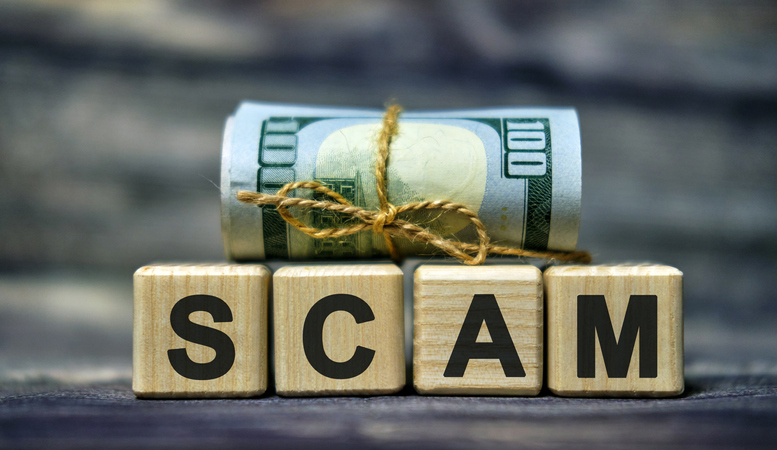Electricity scams are a significant concern in today’s world, as scammers continue to exploit the complexities of utility services and the general public’s trust. These schemes can cause financial harm and emotional distress, making it essential for consumers to be able to recognize and report them effectively. This guide will provide you with a comprehensive understanding of how to spot electricity scams, protect yourself, and take action if you encounter one.
Recognizing Electricity Scams
Unsolicited Contact
One of the primary red flags of an electricity scam is unsolicited contact. Scammers often reach out via phone calls, emails, or text messages, posing as representatives of your utility company. They may claim that there’s an urgent issue with your account, such as an overdue balance or a security breach. It’s important to be skeptical of any unexpected communication that demands immediate action or personal information. Genuine utility companies typically do not use these aggressive methods to resolve issues.
High-Pressure Tactics
Scammers frequently employ high-pressure tactics to create a sense of urgency. They might threaten to disconnect your power if you do not make an immediate payment or provide personal information. This tactic is designed to panic you into acting quickly without verifying the legitimacy of the request. Real utility companies follow established procedures for handling overdue payments and will send formal notices before taking any drastic measures like disconnection.
Unusual Payment Methods
A major indicator of a scam is the request for payment via unconventional methods. Scammers might ask you to pay with gift cards, wire transfers, or cryptocurrency. These payment methods are typically untraceable and provide little recourse if you fall victim to fraud. Utility companies usually accept standard forms of payment such as checks, credit cards, or direct bank transfers. If someone insists on using an unusual payment method, it’s a significant warning sign that you’re dealing with a scammer.
Unverified Offers
Scammers often use attractive offers or discounts to lure victims. They might promise lower electricity rates or special deals on energy services if you provide personal information or make a payment upfront. These offers are often too good to be true and are used to harvest your details for fraudulent purposes. If you receive unsolicited offers, it’s wise to verify their authenticity through your utility provider before taking any action.
Suspicious Identification
Scammers may present fake identification badges or claim to represent government agencies or utility companies. These impersonations are designed to build credibility and gain your trust. Always verify the credentials of anyone claiming to be from a utility company by contacting the company directly using contact information from their official website or your utility bill.
Steps to Protect Yourself
Verify the Identity of Contact
To protect yourself, always verify the identity of anyone who contacts you claiming to be from your utility company. If you receive a call or email, hang up or delete the message and use a contact number or email address from your utility provider’s official website to reach out to them directly. Do not use contact information provided by the unsolicited message, as it may be part of the scam.
Secure Personal Information
Be cautious about sharing personal or financial information. Do not provide sensitive details over the phone, via email, or text unless you have confirmed the identity of the requester. Genuine utility companies have secure methods for managing customer accounts and will not ask for personal information through unsecured channels.
Monitor Your Utility Statements
Regularly review your utility account statements and online account for any discrepancies or unfamiliar charges. Monitoring your statements can help you spot irregularities early and prevent further damage. If you notice anything suspicious, contact your utility provider immediately to address the issue.
Stay Informed
Educate yourself about common scam tactics and current fraud trends. Many utility companies and consumer protection organizations offer resources and alerts about ongoing scams. Staying informed about these tactics can help you recognize and avoid them more effectively.
Reporting Electricity Scams
Contact Your Utility Provider
If you suspect that you have been contacted by a scammer, report the incident to your utility provider as soon as possible. They can confirm whether the communication was legitimate and may take action to address the issue. Utility companies often have dedicated teams to handle fraud and scam reports.
File a Complaint with Authorities
In the United States, you can report scams to the Federal Trade Commission (FTC) at ftc.gov/complaint or the Consumer Financial Protection Bureau (CFPB) at consumerfinance.gov/complaint. These agencies track fraudulent activities and can offer guidance on what steps to take next. If you’re located outside the U.S., reach out to your local consumer protection agency or equivalent authority for assistance.
Alert Local Law Enforcement
If you or someone you know has been defrauded, file a report with local law enforcement. They can investigate the scam and potentially recover lost funds. Reporting the crime helps authorities track scam patterns and prevent future incidents.
Spread Awareness
In addition to reporting scams, spreading awareness within your community can help others avoid falling victim to similar schemes. Share information about common scam tactics and encourage friends and family to be cautious about unsolicited communications. Community awareness is a powerful tool in combating fraud.
Conclusion
Electricity scams are a serious issue that can have significant financial and emotional impacts on individuals and families. By learning to recognize the signs of a scam, taking proactive steps to protect your personal information, and knowing how to report fraudulent activities, you can safeguard yourself and contribute to a safer community. Remember to remain vigilant, verify any unsolicited contacts, and take action if you encounter suspicious activity. Through collective awareness and prompt reporting, we can work together to thwart scammers and protect our personal and financial well-being.
Stay tuned with GlamourCrunch!





